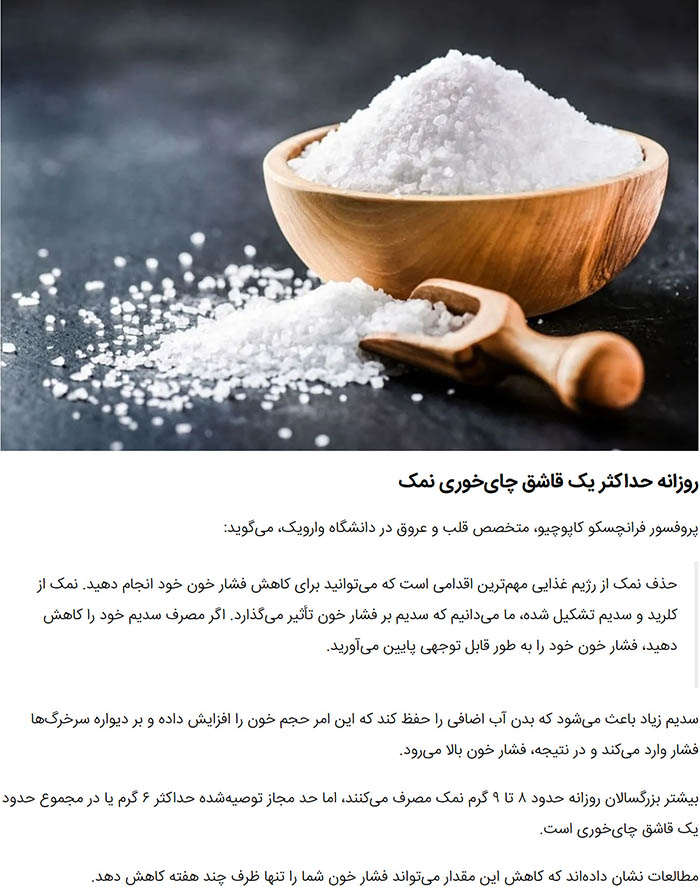Limiting salt intake to one teaspoon a day can have a major impact on heart health. Professor Francesco Cappuccio, a cardiologist at the University of Warwick, explains that salt, composed of sodium and chloride, directly influences blood pressure. Excess sodium causes the body to retain water, increasing blood volume and putting extra strain on artery walls. This leads to higher blood pressure and a greater risk of heart disease and stroke.
Most adults consume between 8 and 9 grams of salt daily, far above the recommended limit of 6 grams—roughly one teaspoon. Studies show that reducing salt intake to this level can lower blood pressure within a few weeks, improving cardiovascular health.
Experts advise focusing on home-cooked meals to control sodium levels, as most excess salt comes from processed foods such as bread, sauces, soups, and ready-made meals. Cooking at home allows better control over ingredients and portion sizes.
However, Professor David Webb of the University of Edinburgh suggests that people should reduce salt gradually rather than cutting it out completely at once. Gradual changes are more sustainable and help individuals adjust their taste preferences over time, leading to long-term improvements in health and diet quality.

